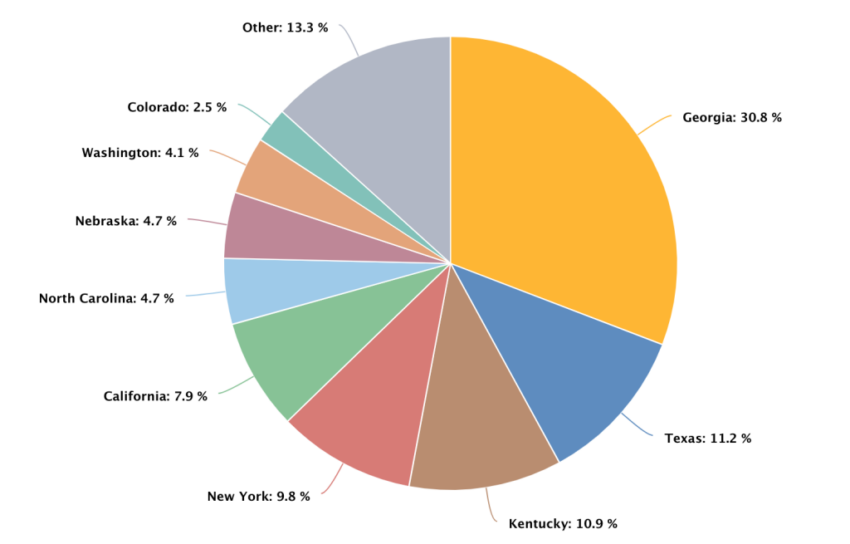NYT Journalist Called Out for ‘One-Sided’ Bitcoin Mining Hit Piece
0
0

A once-renounced journalist has been called out for reporting one-sided articles about Bitcoin. His latest anti-crypto tirade is about noise pollution from a Bitcoin mining farm in Arkansas.
On February 3, the New York Times published a piece by investigative reporter Gabriel Dance. The article focused on complaints by residents regarding noise generated by computers mining Bitcoin.
Selective Reporting Denounced
However, the Bitcoin-bashing article was criticized by environmentalist and venture investor Daniel Batten for being one-sided.
“Every piece he writes about Bitcoin is a one-sided hit-piece devoid of any genuine investigation.”
According to Dance, the noise generated by the cooling fans on mining computers has prompted complaints from residents about
“Ruined lives, lowered property values, and displaced wildlife.”
Bitcoin mining operations have quickly expanded in Arkansas. There are three sites owned by a network of companies that have been embroiled in disputes with local residents.
 Bitcoin mining hash rate share by state. Source: Techopedia
Bitcoin mining hash rate share by state. Source: Techopedia
In April 2022, Arkansas passed the “Right to Mine” law, shielding Bitcoin miners from noise ordinances and zoning restrictions.
However, the law has drawn backlash, with some Republican lawmakers now seeking to ban industrial mining statewide, claimed the report.
Nevertheless, the writer was accused of using
“Emotionally manipulative language, either unsupported by fact or exaggerated to the extreme.”
Read more: Is Crypto Mining Profitable in 2024?
Batten, who is a green energy mining advocate, added:
“Is it your confirmation bias or your NYTimes paycheck that is currently blinding you to the myriad of ways the world discovered in 2023 that Bitcoin is supportive of the environment.”
It was also observed that selective reporting caters to the public’s bias towards negative news. This ensures higher engagement and, consequently, higher revenue for media outlets such as the NYT.
It also goes to some lengths to explain why mainstream media publishes more Bitcoin FUD than positives. There is also the notion that some media outlets are backed by big Wall Street players who see Bitcoin as a threat. Unsurprisingly, these include the New York Times and the Wall Street Journal.
Anti-Bitcoin Mining Agendas
On February 3, crypto podcaster “Walker” did some digging into the NYT’s journalists revealing banking connections:
“Can’t believe NYT is hiring bankers to write their Bitcoin FUD op-eds…”
On February 1, it was reported that the US Energy Information Administration (EIA) will monitor crypto miners’ energy use amid environmental concerns.
Read more: How To Mine Cryptocurrency: A Step-by-Step Guide
However, it has been widely reported that Bitcoin mining is becoming greener. In late January, a UN study on Bitcoin mining was scrutinized for its reliance on outdated sources and selective bias.
Additionally, the European Union is also on a path to curtail or ban Bitcoin mining due to false assumptions about its environmental impact. The European Commission is also backed by major central banks, which explains its anti-Bitcoin reporting and planned action.
0
0
 Beheer al jouw cryptovaluta, NFT en DeFi vanaf één plek
Beheer al jouw cryptovaluta, NFT en DeFi vanaf één plekVerbind de portfolio die je gebruikt veilig om te beginnen.






